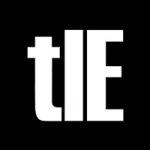Len Nichols, Director of the Center for Health Policy Research and Ethics (CHPRE) and a Professor of Health Policy at George Mason University, made the following remarks at the conclusion of the 2018 AcademyHealth Annual Research Meeting session on Uwe Reinhardt.
Uwe was not a Believer in the traditional sense, but he was a student of all religions and of human behavior. He relished weaving his expansive knowledge of both into discussions of health economics or health policy issues, with his characteristic wit, whenever possible. In doing this he modeled, for those of us privileged enough to see him in action, exactly how to make the self-satisfied and powerful question themselves, in private later, if not in public in the immediate face of his often hilarious but quite pointed challenges to the moral wisdom of decisions already made.
I’d like to mention two of his more memorable invocations. One, Uwe frequently reminded elected representatives that a governmental budget in a democratic society is really a kind of Memo to God about our collective priorities. Uwe thought it is the duty of the elected to express those priorities with tax and spending and policy rules that allocate resources accordingly, and to put these documents in public so that God and everyone may see and review them to learn which priorities are being pursued. (Even God has to read the fine print since one can’t always discern the actual priorities from what politicians actually say).
When you think about this elected duty, and then when you think about what tax and spending and policy priorities our federal government is pursuing today, well you can imagine for yourselves what Uwe would think in general. Uwe who was a young boy during WWII in Germany, somehow made his way with nearly nothing to Canada and then to the United States, who found great success in academic, public intellectual and personal life, living the American Dream, literally, with a sweet and lovely and brilliant woman who had navigated her own hardships coming out of a rapidly transforming China — you can imagine indeed what Uwe would say, at length, about the Memos being written to God today in Washington, DC.
But the specific event I want to put in your memory is the day I saw him ask the New Jersey legislature, who respected him enough to invite him to address them. I wish you could have been there to see him ask them how they could square their own surely deeply pious religious beliefs with the Memo to God they had just happily written that said to pay doctors for treating a child on Medicaid exactly ¼ of what private insurers were paying doctors for treating middle class children at that time. Did they really think a poor child was worth ¼ of what a middle class child was worth? Of course Uwe made ‘em all laugh first, but the moral power of that question still rings in the air in Trenton, I would bet you a very nice lunch.
Second I will mention one of my special treats, for in the last 15-20 years I was sometimes privileged to speak on the same program, though unfortunately invariably AFTER Uwe, and Uwe knew I am an Episcopalian but grew up a rural Arkansas Methodist so unlike most Episcopalians I’ve actually read the Bible, even the Old Testament and especially the Torah, the first five books. And Uwe, you may not know, had read the Bible completely through at least 3 times, and unlike most Christians other than my grandmother he actually remembered ALL of it.
Anyway, if Uwe knew I was going to speak later that day he would always say, “Len Nichols and I have a pact, to mention Jesus in all of our talks,” and he would always do his part to bring the morality attributed to the carpenter from Nazareth into the health policy discussion of the day. One of my favorite examples was when he asked an audience of executives of Catholic hospitals, “What would Jesus charge for cardiology today?”
Uwe has today been properly extolled for clarifying that a high price IS the original sin of American health care, but his pointed question to the administrators of the Holiest hospitals that day was designed to remind them that 2x, 3x, even 4x Medicare might not be what the humble footwasher from Galilee would have recommended, even though it did pay for that very nice new maternity wing that had just been added, plus that very tasty meal we had consumed the night before with wine three notches above communion grade, not to mention our own non-trivial speaking fees.
Now the C-suite would also think and say the overpriced cardiology also paid for uncompensated care and of course they would be correct, and Uwe’s larger criticism was not wholly directed at the hospitals since overpriced cardiology may very well be a 2nd best necessity in a country that refuses to write properly inclusive Memos to God so that all God’s children can get the care they need at reasonable prices.
But Uwe loved to let the questions hang there and eventually poke their way into the hearts of his loving audiences, and that is the moral economics voice I wanted to recall for all of you today. Despite his erudition and wisdom, it was an humble voice, designed to make each of us examine choices we have made and will make, not the COMMANDING voice of a self-righteous scold, but rather a firm but gentle voice of moral clarity reminding us that we can still do better in finding our own paths to the right way to allocate resources for the health and well-being of our fellow citizens of the world we share.

